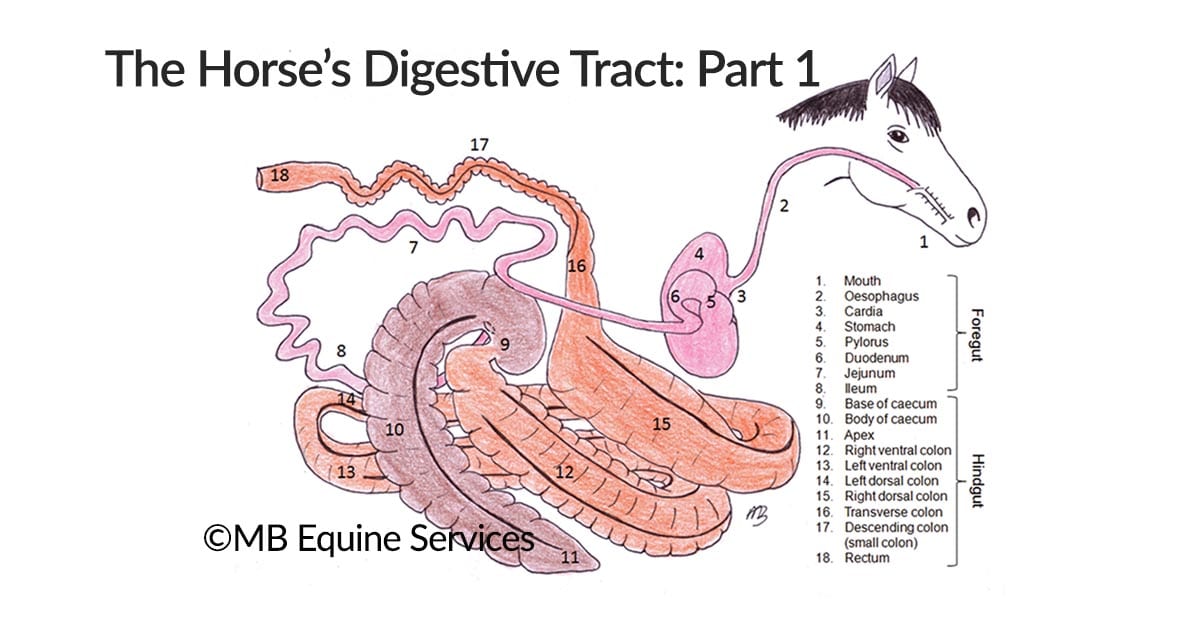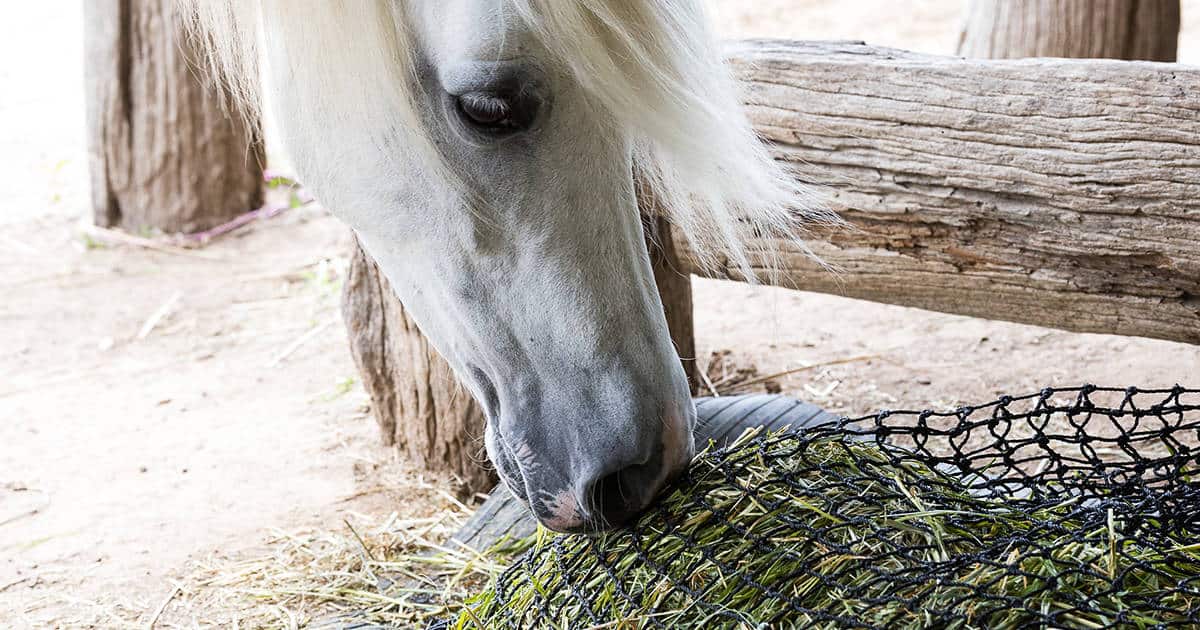Let’s Talk About Horse Poo
Anyone who has ever had to look after a horse for any length of time knows that they produce a lot of manure. In fact, a 500kg horse defecates about 4-13 times a day, producing 15.5 to 22.5kg of faeces and urine daily, which adds up to 8 metric tons a year! While...
Understanding Obesity in Horses
Obesity has been defined as a medical condition in which excess body fat has accumulated to the extent that it may have an adverse effect on health, leading to reduced life expectancy and increased health problems. Now, let’s talk about equines specifically. Horses...
Dispelling Myths on Probiotics for Horses
Dispelling myths on probiotics for horses... Horse catalogues and feed stores are loaded with a wide range of pre- and probiotics. But do they really help the horse? In a presentation entitled ‘Hindgut Microbiome’, Dr Wendy Pearson, an assistant professor of equine...
Anatomy of the Horse’s Digestive Tract, Part 3: The Large Intestine
The horse’s digestive system labelled and explained, with facts, figures and other important information that is relevant to their health. In this three part series we dissect the equine gastrointestinal (GI) tract to gain a better understanding of the digestive...
Anatomy of the Horse’s Digestive Tract, Part 2: The Small Intestine
The horse's digestive system labelled and explained, with facts, figures and other important information that is relevant to their health. In this three-part series we dissect the equine gastrointestinal (GI) tract to gain a better understanding of the digestive...
Anatomy of the Horse’s Digestive Tract, Part 1: From Mouth to Stomach
The horse's digestive system labelled and explained, with facts, figures and other important information that is relevant to their health. In this three part series we dissect the equine gastrointestinal (GI) tract to gain a better understanding of the digestive...
Fast Referral Gives Horses The Best Chance For Surviving Colic
HEALTH REPORT SPONSORED BY Fitton HorseInsure Surviving Colic He’s down. He’s rolling. He’s up! … And, down again. Oh no, and now he’s got that look. The one that tells you, yeah, this seems pretty bad. For horse owners, few situations create more anxiety than finding...
Slow Your Horses Overnight Feeding
Overnight Feeding: That midnight snack might not make your tummy very happy... But then again, you’re not a horse. To maintain your horse’s digestive health and general welfare, you should consider trickle feeding your stabled horses during the night so as to better...
Colic, Still the Number One Killer
Colic in horses: Even though colic is a common ailment in horses, it can be mysterious and frightening for horse owners. Colic is a generalised term referring to any type of abdominal pain in the horse and most commonly originates from within the gastrointestinal...
Monitoring Your Horse’s Condition
Monitoring Your Horse's Condition - According to recent studies, horse owners are missing early signs their horses and ponies are becoming overweight until they are dangerously obese. This means they are putting their horses at risk and making weight loss programs...
Choke
Choke: The material causing the blockage is normally foodstuff, but in isolated cases may consist of plastic, rocks, timber or other foreign materials. The blockage may be partial or complete. In most cases, choke is not an immediate emergency, but if the problem does...











